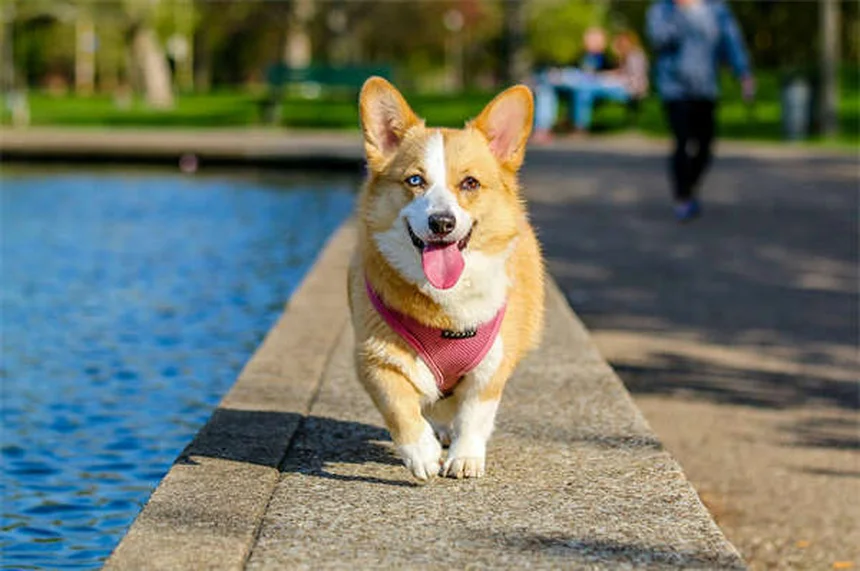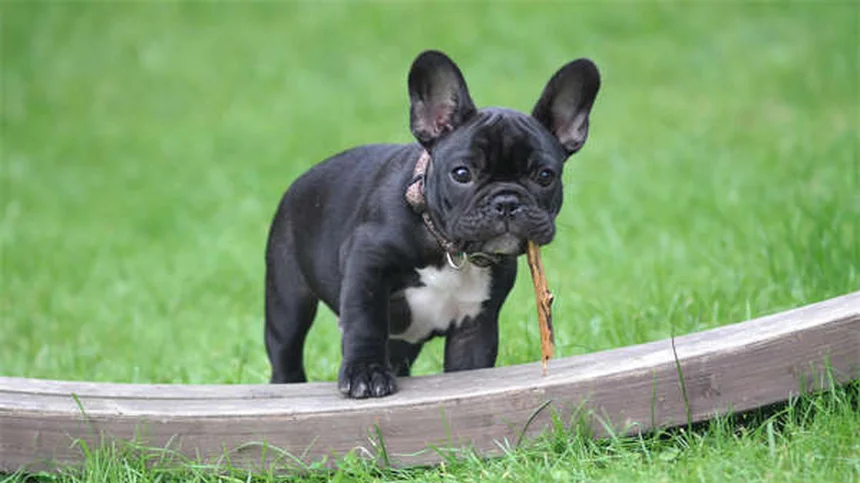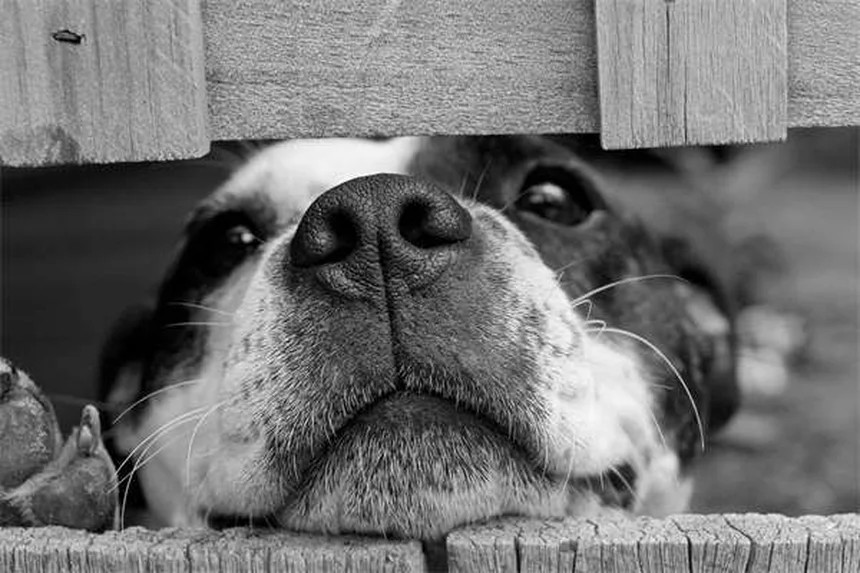Can guinea pigs get adenovirus? The answer is yes - guinea pig adenovirus (GPAdV) is a real threat to our furry friends. While many infected guinea pigs show no symptoms at all, others can develop serious respiratory issues, especially young pups and senior piggies with weaker immune systems. The scary part? Some guinea pigs die suddenly without showing any warning signs.As a guinea pig owner myself, I know how worrying this can be. That's why I'm breaking down everything you need to know about GPAdV - from spotting the early signs to creating a safe environment for your pet. The good news is that with proper care and prevention, most guinea pigs can overcome this infection. Let's dive into how you can protect your little buddy from this sneaky virus.
E.g. :Apoquel for Dogs: Fast-Acting Itch Relief Your Vet Recommends
Advertisement
- 1、Understanding Adenovirus in Guinea Pigs
- 2、How Does GPAdV Spread?
- 3、Treatment Options (Or Lack Thereof)
- 4、Creating a Healing Environment
- 5、Prevention Is Better Than Cure
- 6、Beyond the Basics: Additional Considerations for GPAdV
- 7、Nutritional Support for Immune Health
- 8、When to Sound the Alarm
- 9、Building a Support System
- 10、FAQs
Understanding Adenovirus in Guinea Pigs
What Exactly Is GPAdV?
Let me break it down for you - guinea pig adenovirus (GPAdV) is a sneaky little virus that loves to target our furry friends. Young pups and senior guinea pigs are especially vulnerable because their immune systems aren't at their best. Here's something wild - some guinea pigs carry the virus without ever showing symptoms! They're like undercover agents for GPAdV.
Now, here's the good news - most guinea pigs survive this infection. But when tragedy strikes, it often happens suddenly. One day your piggy seems fine, the next... well, let's not dwell on that. Instead, let's focus on how to spot trouble early.
Spotting the Signs
Did you know most infected guinea pigs show zero symptoms? That's right - they're walking around like nothing's wrong while potentially spreading the virus. But when symptoms do appear, here's what to watch for:
| Common Symptoms | Rare Symptoms |
|---|---|
| Mild fever | Severe respiratory distress |
| Reduced appetite | Pneumonia |
| Lethargy | Nasal discharge |
The virus plays hide-and-seek for 5-10 days before symptoms might appear. Then there's a 10-12 day period where your pet could be shedding the virus everywhere. This is when they're most contagious!
How Does GPAdV Spread?
 Photos provided by pixabay
Photos provided by pixabay
The Usual Suspects
Imagine your guinea pig at a party (I know, funny image, right?). The virus spreads through:
- Sneezes and coughs (the worst party favors)
- Contaminated bedding (the equivalent of dirty party napkins)
- Possibly urine and feces (let's not think about that too much)
Here's a question you might be asking: "Can my healthy adult guinea pig get sick?" Absolutely! While babies and seniors are most at risk, any guinea pig with a weakened immune system can catch GPAdV.
Diagnosing the Problem
Your vet will play detective here. They'll look for symptoms first, but to be 100% sure, they'll need to run tests. The ELISA test is like the gold standard for catching this virus red-handed. It's not cheap, but it's the most reliable way to confirm GPAdV.
Treatment Options (Or Lack Thereof)
The Hard Truth
Here's the tough part - we can't directly attack the virus. But we can support your guinea pig through the illness. Your vet might prescribe:
- Antibiotics (for secondary infections)
- Fluid therapy (hydration is key!)
- Nutritional support (sick pets need extra TLC)
Another question you might have: "Is treatment worth the cost?" That's a personal decision. While treatment won't kill the virus, it can help your pet feel better and potentially recover faster.
Creating a Healing Environment
 Photos provided by pixabay
Photos provided by pixabay
The Usual Suspects
Think of your sick guinea pig like a patient in recovery. They need:
- A quiet, stress-free space (no loud music or rowdy kids)
- Super clean living quarters (time to break out the disinfectant)
- Separation from other pets (sorry, no playdates while sick)
Remember that cage? It needs a deep clean before your pet returns. I'm talking scrub-every-corner, change-all-bedding level clean. This isn't just about comfort - it's about preventing reinfection.
Prevention Is Better Than Cure
Keeping Your Herd Safe
Let's talk about creating a fortress against GPAdV. Your defense strategy should include:
- Daily cage cleaning (yes, daily!)
- Weekly deep cleans (get those hard-to-reach spots)
- Quarantine for new pets (two weeks minimum)
Fun fact - guinea pigs are like toddlers. They'll put anything in their mouths and walk through their own waste. That's why cleanliness isn't just nice, it's essential for prevention.
The Big Picture
At the end of the day, GPAdV is manageable if you're proactive. Watch for symptoms, maintain good hygiene, and don't hesitate to call your vet if something seems off. Your guinea pigs depend on you to keep them safe and healthy - and with these tips, you're well-equipped to do just that!
Featured Image: iStockPhoto.com/Arisara_Tongdonnoi
Beyond the Basics: Additional Considerations for GPAdV
 Photos provided by pixabay
Photos provided by pixabay
The Usual Suspects
Let's get real for a moment - when your guinea pig gets sick, it hits you right in the feels. I've seen owners beat themselves up over GPAdV cases, but here's the truth: this virus is sneaky and unpredictable. Even the most careful pet parents can face outbreaks.
Remember that time you forgot to wash your hands before handling your guinea pig? Don't panic - we're all human. The important thing is learning and moving forward. Maybe set up a cute little hand sanitizer station near their cage as a reminder!
Environmental Factors You Might Not Consider
Think your home is safe? Let me throw some curveballs at you:
- That air freshener plug-in? Could be irritating their respiratory system
- The draft from your AC unit? Might be stressing their immune system
- Even seasonal changes can impact their vulnerability
Here's a pro tip: keep a small notebook by the cage to track any changes in environment or behavior. You'll start noticing patterns you never saw before!
Nutritional Support for Immune Health
Superfoods for Super Piggies
While there's no magic cure, certain foods can give their immune system a boost:
| Food | Benefit | How Often |
|---|---|---|
| Red bell pepper | High in vitamin C | 2-3 times weekly |
| Parsley | Antioxidant properties | Small amounts daily |
| Blueberries | Immune support | 1-2 berries weekly |
But wait - before you go creating a gourmet meal plan, remember that sudden diet changes can cause more harm than good. Introduce new foods slowly and watch for any digestive issues.
The Water Factor
You change their water daily, right? Of course you do! But here's something most owners overlook - the type of water bowl matters. Those cute little bottles with metal spouts? They can harbor bacteria in hard-to-clean areas. I'm team ceramic bowls all the way - easier to clean and more natural drinking position.
When to Sound the Alarm
Subtle Signs You Might Miss
We all know about lethargy and appetite loss, but GPAdV has some sneaky symptoms:
- Excessive teeth grinding (not the cute kind)
- Unusual posture (hunched more than usual)
- Changes in vocalization patterns
Here's a question I get all the time: "How do I know if it's serious or just an off day?" Trust your gut - you know your pet better than anyone. If something feels off for more than 24 hours, it's vet time.
The Waiting Game
So you've been to the vet and now you're in that awful waiting period. First, take a deep breath. While you wait, focus on making your guinea pig comfortable:
- Keep their space at a consistent temperature
- Offer their favorite foods (even if they only nibble)
- Talk to them in calm, soothing tones
I know it's tempting to check on them every five minutes, but stress can actually make recovery harder. Try setting specific check-in times to give them (and you) some breathing room.
Building a Support System
Finding Your Guinea Pig People
Dealing with GPAdV can feel isolating, but you're not alone! There are amazing online communities where owners share:
- Home remedy successes (and failures)
- Vet recommendations
- Emotional support during tough times
Just remember - take internet advice with a grain of salt. What worked for someone else's guinea pig might not work for yours. Always check with your vet before trying new treatments!
Preparing for the Future
If you've been through a GPAdV scare, you're probably wondering how to prevent future outbreaks. Here's my three-step plan:
- Establish a relationship with an exotic pet vet before you need one
- Create an emergency fund (even $20/month adds up)
- Develop a quarantine protocol for any new additions
And hey - give yourself some credit. The fact that you're reading this shows you're an amazing pet parent. Your guinea pigs are lucky to have someone who cares this much!
E.g. :Viral Pneumonia in Guinea Pigs | PetMD
FAQs
Q: How do I know if my guinea pig has adenovirus?
A: Here's the tricky part - many guinea pigs with GPAdV show no symptoms at all. But when symptoms do appear, watch for fever, loss of appetite, breathing difficulties, or unusual lethargy. Your piggy might make crackling sounds when breathing or have nasal discharge. The virus typically incubates for 5-10 days before symptoms might show up. If you notice any of these signs, especially in young or elderly guinea pigs, it's time to visit your vet. Early detection can make all the difference in your pet's recovery.
Q: Can adenovirus kill my guinea pig?
A: While most guinea pigs survive GPAdV infection, the virus can be fatal in some cases. The scariest aspect is that some guinea pigs die suddenly without showing previous symptoms. Deaths are more common in very young, very old, or immunocompromised guinea pigs. That's why prevention and early detection are so crucial. Regular health checks and maintaining a clean environment can significantly reduce the risks to your furry friend.
Q: How is guinea pig adenovirus treated?
A: Here's the hard truth - there's no direct treatment for the virus itself. Your vet will focus on managing symptoms and supporting your pet's immune system. Treatment typically includes antibiotics for secondary infections, fluid therapy to prevent dehydration, and nutritional support. While treatment can be costly, it helps your guinea pig fight off the infection more comfortably. The recovery environment at home is equally important - think quiet space, ultra-clean cage, and lots of TLC.
Q: Can my other guinea pigs catch adenovirus?
A: Absolutely! GPAdV is highly contagious among guinea pigs. It spreads through sneezes, coughs, and possibly contaminated bedding or feces. If you have multiple guinea pigs, immediately separate any sick ones and disinfect everything they've touched. New guinea pigs should be quarantined for at least two weeks before introducing them to your existing pets. Regular cage cleaning and good hygiene are your best defenses against spreading the virus in your guinea pig family.
Q: How can I prevent adenovirus in my guinea pigs?
A: Prevention starts with military-level cleanliness. Clean cages daily, do deep weekly disinfections, and always wash your hands between handling different pets. Boost your guinea pigs' immune systems with proper nutrition and stress-free environments. Be extra vigilant with young, old, or sick guinea pigs as they're most vulnerable. Remember - while you can't eliminate all risks, these simple steps dramatically reduce the chances of GPAdV affecting your precious pets.
